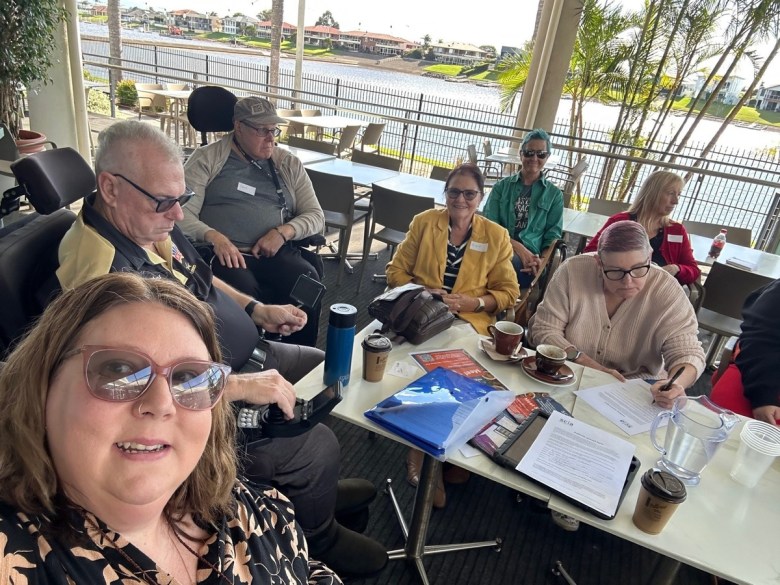Being disabled can often be an isolating experience, but a series of community groups springing up around New South Wales is changing that.
Called local Community Networks, the groups promote connection and advocacy among those living with spinal cord injury and neurological conditions.
They’re backed by Spinal Cord Injuries Australia (SCIA), which tasked members of its Advocacy and Advisory group with setting up groups in their areas to identify local issues of importance to people with spinal cord injuries.
Meet-ups are held in accessible locations in metropolitan and regional communities every two months, and are led by volunteers
Sarah-Lynn Eade, a woman living with disability who coordinates the Port Macquarie group, said she tries to find accessible parks, clubs and cafes to meet in.
She said the groups have been lifechanging for her.
“SCIA has been amazing supporting us to be able to support other people. I wanted to be able to help people again, and they gave that back to me.”
Eade said the groups provide a safe space for members to talk about any struggles they are facing and how these can be tackled through advocacy and knowledge sharing.
They also provide a platform for attendees to bring up local issues that can then be highlighted in other forums, like local council meetings. SCIA guides discussions about state and federal issues and the formation of policy briefs to address them.
Eade added the groups have been popular within the community, growing mostly through word of mouth and social media – and she hopes to grow it more in future.
Suzie Stollznow, Systemic Advocacy and Social Impact Manager at SCIA, said the groups fit well with the ethos of SCIA.
“We were founded by people advocating to live in the community… so we’re always looking for ways to help our members, people with spinal or neurological conditions, to speak up about the issues that are important to them.”
Stollznow said the volunteers who lead each group have been trained to get to the heart of issues raised and identify actions that can be taken to mitigate them.
“You need to get to the heart to be able to take action,” she explained.
“At a systemic level we’ve got priorities that we know are important for our community, so we share them, but we feed back the information from people like Sarah and their communities are sharing to inform our policy briefings.”
Recent focuses to have come out of this process include advocating for accessible housing. Eade, who has been through the lengthy hunt for an accessible property, said this is an area that is urgently in need of a systemic fix.
Eade said the groups have helped members form connections with others in their communities.
“The groups make people feel less alone in their disability and they now have people to relate to and understand their circumstances.
“The connections are just amazing and it’s something I know I needed, and our members have told me that we’ve really needed. The more voices that are heard with these issues, the better outcomes we’re going to have.
“It lets us be heard and have a support system around us. Just sharing knowledge makes them feel empowered because they’re helping others as well.”
SCIA hopes to be able to expand the groups around Australia.

